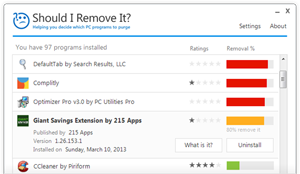Import table
advapi32.dll
GetPrivateObjectSecurity, RegCreateKeyExW, RegDeleteKeyW, CreatePrivateObjectSecurity, GetSecurityDescriptorLength, DestroyPrivateObjectSecurity, RegQueryValueExW, AccessCheckAndAuditAlarmW, ObjectDeleteAuditAlarmW, ObjectCloseAuditAlarmW, AllocateAndInitializeSid, FreeSid, SetSecurityDescriptorOwner, SetSecurityDescriptorGroup, GetAce, MakeSelfRelativeSD, RegDeleteValueA, RegEnumKeyExW, SetPrivateObjectSecurity, RegCloseKey, RegQueryValueA, RegOpenKeyA, ObjectCloseAuditAlarmA, SetServiceStatus, RegisterServiceCtrlHandlerA, StartServiceCtrlDispatcherA, SetSecurityDescriptorDacl, AddAccessAllowedAce, AddAccessDeniedAce, InitializeAcl, InitializeSecurityDescriptor, GetLengthSid, GetSidSubAuthority, InitializeSid, GetSidLengthRequired, OpenProcessToken, OpenThreadToken, LookupAccountSidA, GetTokenInformation, AccessCheckAndAuditAlarmA, IsValidSecurityDescriptor, RevertToSelf, RegSetValueExA, RegCreateKeyExA, RegSetValueExW, RegOpenKeyExA, RegQueryValueExA, RegisterEventSourceW, ReportEventW, RegisterEventSourceA, ReportEventA, DeregisterEventSource, RegOpenKeyExW
gdi32.dll
DeleteEnhMetaFile, DeleteMetaFile, DeleteObject, CreatePalette, GetPaletteEntries, SetEnhMetaFileBits, GetEnhMetaFileBits, CreateBitmapIndirect, GetObjectA, GetBitmapBits, SetMetaFileBitsEx, GetMetaFileBitsEx, GetStockObject
kernel32.dll
GetCurrentThreadId, InterlockedIncrement, GetModuleFileNameA, SetEvent, CreateThread, WaitForSingleObject, CreateEventA, GetTickCount, GetProcAddress, FreeLibrary, LoadLibraryA, ResumeThread, GetComputerNameA, TlsSetValue, DisconnectNamedPipe, WriteFile, WaitForMultipleObjects, ConnectNamedPipe, CloseHandle, CreateNamedPipeW, TlsAlloc, InitializeCriticalSection, SetConsoleCtrlHandler, SetProcessShutdownParameters, GetCurrentProcess, GetCurrentThread, LocalUnlock, LocalLock, QueryPerformanceCounter, GetCurrentProcessId, GetSystemTimeAsFileTime, TerminateProcess, UnhandledExceptionFilter, SetUnhandledExceptionFilter, GetModuleHandleA, GetStartupInfoA, OutputDebugStringA, lstrcmpiA, InterlockedExchange, GlobalDeleteAtom, lstrcpynA, GlobalHandle, lstrlenA, LocalAlloc, lstrcpyA, TlsGetValue, LocalFree, ReadFile, GlobalAddAtomA, GlobalReAlloc, EnterCriticalSection, LeaveCriticalSection, GlobalGetAtomNameA, GlobalSize, GlobalLock, GetLastError, GlobalUnlock, GlobalAlloc, GlobalFree, GlobalCompact, MultiByteToWideChar, WideCharToMultiByte, IsBadReadPtr, IsBadWritePtr, InterlockedDecrement, lstrcmpiW
msvcrt.dll
DllMain
ntdll.dll
NtSetInformationThread, _snprintf, memmove, RtlAnsiStringToUnicodeString, RtlInitUnicodeString, RtlCopyString, NtAllocateLocallyUniqueId, _chkstk, RtlInitAnsiString, RtlOpenCurrentUser, atoi, wcschr, wcslen, RtlValidRelativeSecurityDescriptor, wcscpy, wcscat, swprintf, wcscspn, _vsnwprintf
rpcrt4.dll
RpcServerUseProtseqEpA, RpcServerRegisterAuthInfoA, RpcServerListen, RpcImpersonateClient, RpcServerRegisterIf, NdrServerCall2
secur32.dll
LsaRegisterLogonProcess, LsaFreeReturnBuffer, LsaCallAuthenticationPackage, LsaLogonUser, LsaLookupAuthenticationPackage
user32.dll
SetThreadDesktop, FindWindowA, GetThreadDesktop, OpenDesktopW, SetProcessWindowStation, GetProcessWindowStation, OpenWindowStationW, ImpersonateDdeClientWindow, OemToCharBuffA, GetMessageA, GetClassLongA, DefWindowProcA, GetWindowThreadProcessId, TranslateMessage, CreateWindowExA, DdeSetQualityOfService, SendMessageTimeoutA, DestroyWindow, PackDDElParam, ReuseDDElParam, PostMessageA, CharUpperA, SetWindowLongA, SendMessageA, IsWindow, GetWindowLongA, UnpackDDElParam, FreeDDElParam, DispatchMessageA, PeekMessageA, CloseDesktop, CloseWindowStation, GetWindow, PostQuitMessage, GetDesktopWindow, UpdateWindow, RegisterWindowMessageA, RegisterClipboardFormatA, LoadCursorA, DdeGetQualityOfService, GetClipboardFormatNameA, MessageBoxA, GetParent, RegisterClassA

